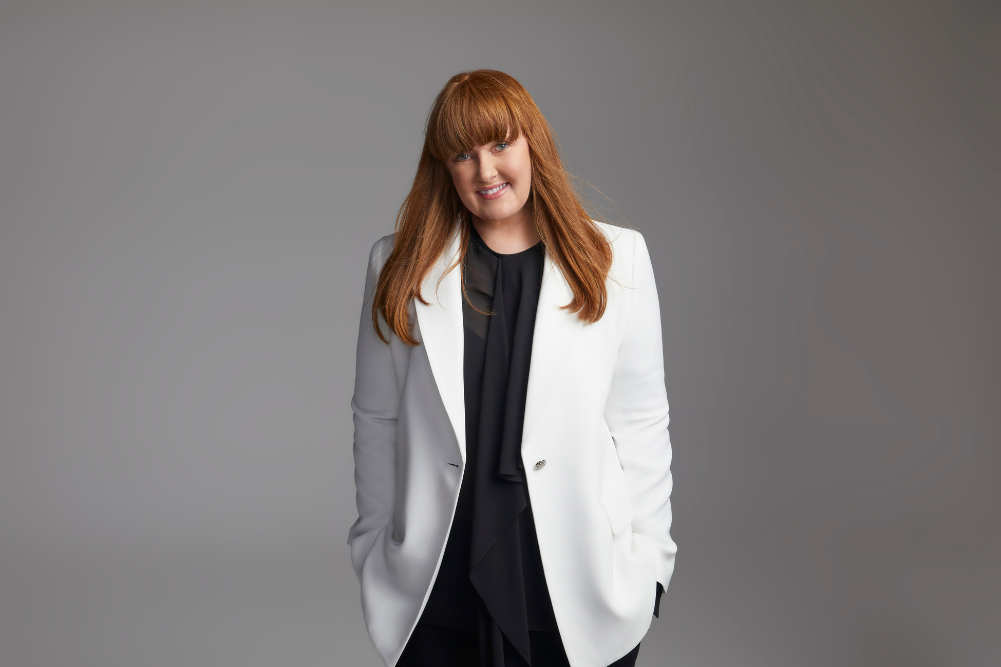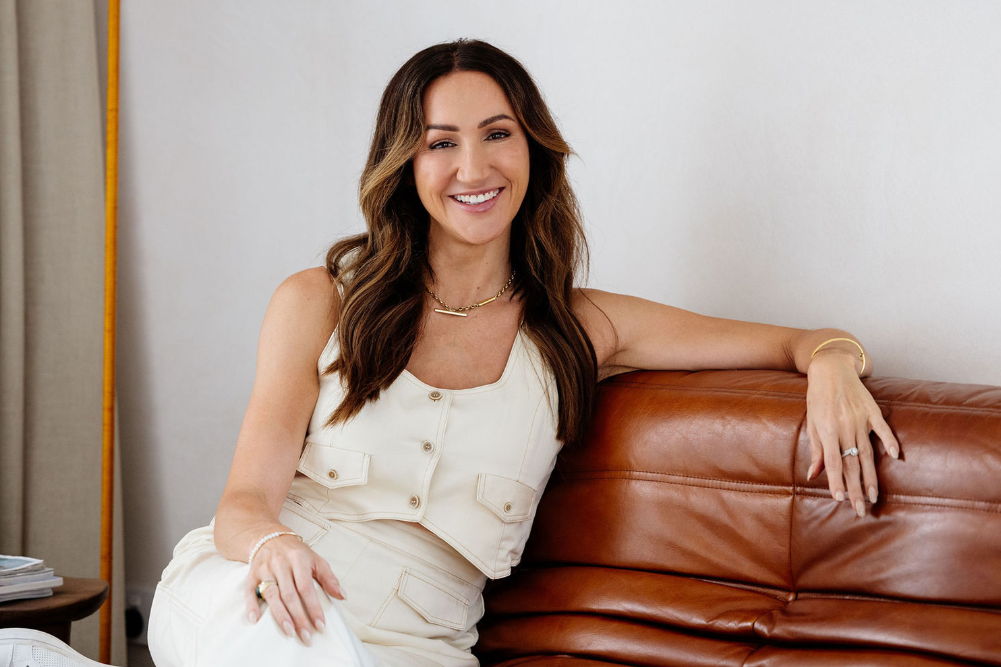The inspiring life of cook, storyteller and educator Stephanie Alexander
It’s almost an Australian rite of passage. For thousands and thousands of us, learning how to cook from one of the many Stephanie Alexander cookbooks is an integral part of coming of age: the most common being, of course, the iconic Cook’s Companion. Now in its third edition, and having sold 500,000 copies since its first release in 1996, I imagine it in kitchens dotted around the country, dog-eared with notes scribbled alongside recipes and covered in flour and splats of sauce.
And so, in preparation of speaking with the woman regarded as one of Australia’s great food educators, Stephanie Alexander AO, it seemed fitting that I, too, dig out my very first cookbook, Stephanie’s Feasts and Stories, a present from my mum when I left home. As I flick through its equally dog-eared and splattered pages, the art of Alexander’s storytelling becomes even more obvious. In a world currently obsessed with superfoods and diet fads, her message has always been the same: food is the cornerstone of memories.
In a world currently obsessed with superfoods and diet fads, her message has always been the same: food is the cornerstone of memories.
“Telling the stories behind the food is probably my major occupation,” Alexander shares. “Through all the years I’ve been writing about food, I have always been interested in the stories behind it: how they made it, why they did it that way, anything interesting about the ingredients. I want to know a lot more than just the recipe.”
And, looking at her 50-plus-year career, she’s certainly done that. Everything she has achieved has come from her desire to “break down anxieties about cooking, to emphasise the beauty of fresh produce from the Garden and to promote the pleasures of sharing food around a table”.
Preparing, creating, sharing
After studying to become a librarian and then travelling the world at 21, Alexander began her culinary career in 1964 with her first restaurant, Jamaica House, which opened just three weeks after the birth of her first child. In 1974, she opened Stephanie’s Restaurant in a small shopfront in the Melbourne suburb of Fitzroy. Four years later, the restaurant moved to a National Trust building in Hawthorn and became one of the iconic food centres of Australia. In 1994, Alexander was awarded the Order of Australia for her services to the hospitality industry and her encouragement of young apprentices but eventually she closed her doors in 1997.
Over the years there have also been more than a dozen books, columns for magazines and newspapers and, of course, the “bible”: A Cook’s Companion.
But, interestingly, it was her training as a librarian that Alexander says has now shown up in her latest book, The Cook’s Table (out October 2016). “One area I have never covered before is how to be organised when preparing a special menu for friends,” she says. “Being organised and systematic is second nature to me and many of my alumni in the hospitality world have instituted similar systems of worksheets and job lists as I used to do during the 21 years of Stephanie’s Restaurant. I can laugh at myself, but my list-making was famous!”
“If children are engaged from the earliest possible opportunity in understanding about the natural world, and have a broad concept of their food life, they will feel differently about what they eat, when they eat, how much they eat.”
This includes, as she lovingly shares in her latest book, the setting for her dinners, too — whether those be the heavily embroidered white linen cloth she bought from China many years ago or the hand-blocked coloured cotton cloth from Indonesia via Amsterdam. Immersing yourself in this book — and Stephanie’s approach to food — reminds you of what cooking and entertaining are really all about: doing it with love. As she writes, “In planning my menu, I want to be away from the table as little as possible — I don’t want to miss the best stories.”
A clear preparation plan that includes sourcing the best produce, preparing the space up to a week before the special event and last-minute tasks 10 minutes before the guests arrive means that once again Alexander has tried to take the overwhelming task of cooking for a group and break it down into doable — and enjoyable! — steps. It’s something that, thanks to the current food trends, many modern cooks may have lost.
“The world has turned around and changed and we are living in the age of instant everything,” Alexander tells me. “Of course, on television there are still some fantastic Travel food programs but we also see the other approach, which is cooking under pressure and people dashing about looking at clocks. I still believe, however, that there’s a reading public out there who appreciate good words and love literature, are interested in the stories and places that I’ve been to and want to create their own stories and memories.”
Memories, Alexander reminds us in all that she does, are what this process is all about.
“Even though some of my menus are quite extensive — sometimes three, four or even five dishes — I hope I show that the pleasure comes from the creation of this beautiful meal that you are going to share. I tried to think about people who are just starting out entertaining and are not familiar with cooking for a special meal: how can they enjoy the creation process more? I don’t want them to get to that special Saturday morning and realise, ‘I needed to order this special ingredient from my butcher!’ I want them to have a relationship with their local growers and suppliers, talk to them about the cooking process, get to know them.”
Growing for the future
It’s more than just the way we cook that Stephanie Alexander wants to change; her passion for education has seen her become one of the country’s foremost leaders in food and gardening education.
Starting as a pilot program in Melbourne in 2001 in a college in Collingwood, the Stephanie Alexander Kitchen Garden Foundation was established in 2004 on her belief that children who learn about food early in life through example and positive experiences go on to make better food choices through life. It’s now a national program teaching primary school students how to grow, harvest, prepare and share healthy nutritious food.
Alexander says that “half [her] brain” is taken up with the growth, funding and implementation of this program, which often sees her in meetings with politicians as often as in the school gardens.
“I would like to see it in every school in Australia and for it to be considered vital to every child’s development — as important to learning as reading,” she says. “And I think we can do that. We’re seeing tremendous results, and it’s really encouraging.
“It is my absolute belief that, if children are engaged from the earliest possible opportunity in understanding about the natural world and have a broad concept of their food life, they will feel differently about what they eat, when they eat, how much they eat. They will understand the creatures in the garden, the environment, everything.
“This has to be an integral part of the curriculum, because any teacher who is involved will tell you that you can teach almost anything in the garden and in the kitchen. You can teach maths, you can teach literacy, you can teach social sciences, you can certainly teach environmental science. That’s what is so amazing about this program — it’s more than just food.”
“When I was a teenager, the greatest thrill I got was from food. I would be reading about it, helping Mum cook it, setting the table, listening in to the conversations around the table, going out into the garden where my grandfather was digging and planting. It was my greatest pleasure.”
Over 10 per cent of all primary school students are now growing, harvesting, preparing and sharing fresh food thanks to the kitchen garden program, with online as well as face-to-face training and membership meaning that any educator in the country can join and begin using the resources and methods in their school or organisation.
“Every time I visit one of more than 800 schools that are running this program, I am reinforced in my belief that this is a great way of changing children’s attitude,” Alexander says. “In fact, just this morning, I was at a school and a woman came up to me who was a volunteer and a parent and she said, ‘I just want to thank you for this amazing program. I have three kids who are all picky eaters but since they’ve been on this program they eat anything.’
“I get variations of this story every day. I feel so proud and so very pleased because this is my thesis: if kids get involved and hands on, they feel more responsible, they feel proud, their self-esteem is increased, they even find that they will eat it even if they’ve never seen it before. They’re open to something new and different.”
Her greatest pleasure & lasting legacy
And the vision doesn’t just stop there. There’s also an app of the Cook’s Companion, which includes over 2000 how-to recipes, a garden product range and homewares and Stephanie Alexander’s Kitchen Garden Companion. This book has now been split in two — growing and cooking — with Northern Hemisphere editions released to reflect the local growing conditions and seasons. It’s an empire most entrepreneurs and authors would covet — but one Alexander says has grown as organically as her vegetables.
“I can say honestly that, when I was that age in high school when kids were asked what do they want to do when they [become] an adult, professional cooking didn’t enter my head. I really was very, very happy with the plan, which in my case was to become a librarian. I had no complaints about that plan and I followed it through.
“But it’s also true that, when I was a teenager, the greatest thrill I got was from food. I would be reading about it, helping Mum cook it, setting the table, listening in to the conversations around the table, going out into the garden where my grandfather was digging and planting. It was my greatest pleasure but I thought it was just a hobby.”
All that talk by business success models about having a clear vision and goal in place wasn’t the key to this successful empire then?
“Not at all. I’ve never been good at knowing where I’m going with something. Yes, I’m passionate about what I believe in and I follow it tenaciously but I’m not about having the grand plan. Things happen a bit serendipitously. But once I’m on a path I’ll be very responsible about following it.
“When the Kitchen Garden Foundation started, my aim was not to have it in every school curriculum in Australia. My aim was to make this program and get it up and running — and look at what happened. It was a very limited aim at the beginning and then very soon after that, when I saw how it was working, I thought, ‘Terrific! It’s really working! We need to put it in another school.’
“At the beginning, we did it on our own. We didn’t have any help; we literally were shovelling ourselves. It was only once we got a little bit of government assistance in Victoria … that I started to think that this is more important. It’s more important than I thought and it has greater potential that I ever dreamt of. I think it’s been going on like that up to this day.”
So, if there’s no grand vision, what does this Australian icon hope will be her legacy?
“Well, certainly the Kitchen Garden Program. That it is something every Australian child can learn and love. But, also, I think the book The Cook’s Companion. It’s a very hard task for someone to pull together such an enormous resource like that — she says as if she didn’t write it! But, I think it’s an amazing piece of work. I can’t quite believe that I did it and it is so well looked after and nurtured. Even when I have a tiny little thing that I want to add to it, the next time it’s reprinted, it’s included. It’s almost a living thing to me and it is my hope that it will still be considered relevant for another generation to come.”
Splattered, dog-eared and loved.








